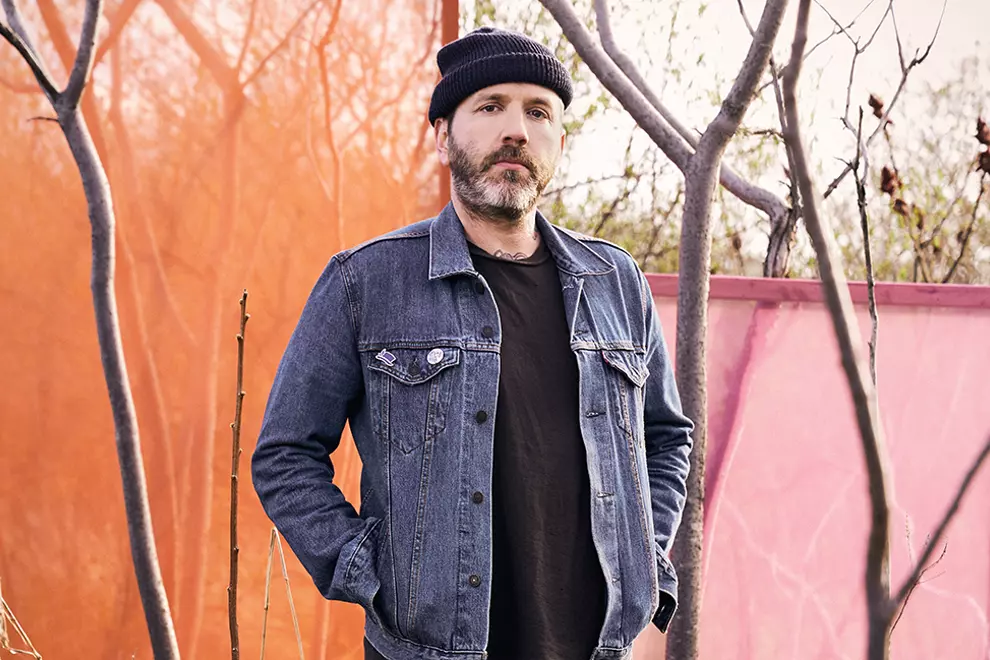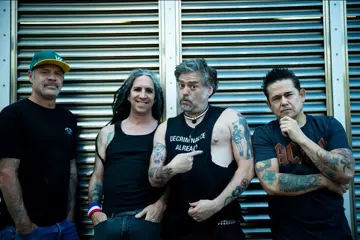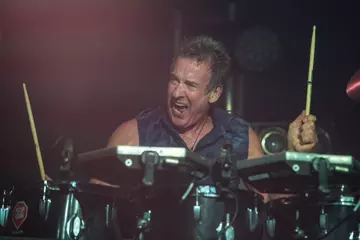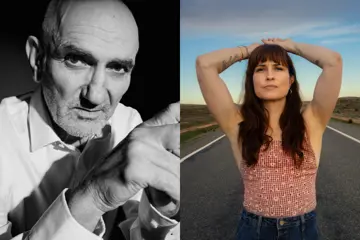 City & Colour
City & ColourTo be lonely is to be human. It is an essential part of the human condition. It breaks hearts and writes songs. It brings people together as we seek connection. It also elevates our risk of cardiovascular disease, cognitive decline and metastatic cancer. It weakens the immune system. It can cause neurodegenerative disease and research suggests situational loneliness can permanently change our brain structures and processes. Classified as a public health problem, the next epidemic even, scientists are looking for a pill to cure it.
Watching the news earlier in the year, Dallas Green – aka the Canadian singer-songwriter who records his solo project (he’s also in post-hardcore band Alexisonfire) under the moniker City & Colour – was stopped in his tracks. “I just thought, ‘Wow,’” he tells us down the phone. “Obviously we try to make a pill for everything these days – anxiety, depression, weight loss, all this stuff – but it just sort of struck me like, ‘Fuck, I can't believe we're living in a world where we are so alone that we're trying to create a pill to get rid of it.’ I started doing more research on it and saw that the studies show we're living in the loneliest era in the history of human civilisation.”
To be alone is not the same as being lonely; it is a neutral disposition. “Somebody gave me shit the other day when I was doing an interview,” Green laughs. “She was like, ‘How can you call the record A Pill For Loneliness and then the first line of the record be, “I'd rather walk alone”?’ I was like, ‘Well sorry, there's a difference between being lonely and being alone.’”
For Green, his “pill” for loneliness has always been music: “Music has always been this thing that I could look to whether it's writing or listening to it, and I think that there's a lot of people that would agree with me and feel the same way.”
Don't miss a beat with our FREE daily newsletter
Research suggests psychotherapy is more effective than medication for a host of psychological disorders. For Green too, music is more than a pill to swallow and he describes writing as “a sort of therapy session”. It is the reason he records under the City & Colour name, needing to separate himself from the music. “Just because of the nature of the songs and what I'm usually writing about, it's a moment where I feel like I need to get that off my chest or out of my own head. I hope that it can go out to the world and then maybe it's not mine anymore for a minute.
“I always say to people when they say nice things to me about my songs helping them, I kinda always respond and say, ‘Well it helps me first,’ and that's the point. I don't know if everyone approaches music that way but when I was young, I found that not only do I enjoy writing and singing, but it was also a way for me to talk myself through some things. The separation comes from, like, not wanting to be stuck in that mood all the time. People will always dismiss me as a sad person. And I'm like, ‘I'm not.’ I'm a normal human being like everybody else. I have good days and bad days, and when I have good days, I don't necessarily think about writing a song about that.”
"Fuck, I can't believe we're living in a world where we are so alone that we're trying to create a pill to get rid of it."
The album, his sixth and first since 2015, is described in the press release as being a lot of dark songs wrapped in beautiful sounds, something Green affirms is an “apt description”: “I always sort of write melancholic type songs. It’s what I do to get myself out of those moods [but] I always try to make it a little bit hopeful. And I always try to make the songs somewhat ‘pretty’ sounding to be a juxtaposition of what I’m singing about.”
It’s “pretty” of course but also the most expansive we’ve heard Green sound in solo form. “It’s definitely the most, for lack of a better word, epic sounding record I’ve ever made,” he says. “I mean, I love music like that and I’m always interested in trying something a little bit different than what I’ve done. But I still wanted to sound like me.”
Wandering is a motif that comes up again and again in Green’s songwriting but he tells us “Canada will always be [his] home”.
“Whenever I come back home after a long tour, or even a short trip, if I'm not in Canada, I feel it. As soon as I get back across the border, I just feel it. You feel home. And I'm very happy about that. I'm very lucky to feel that way about where I'm from. But you have to want to wander in order to survive this style of living... Being on the road, it's a difficult way to live. I feel like it's also home in the same way.”
After living in Nashville, returning home to Toronto meant Green was able to reunite with Alexisonfire and release the band’s first music in nearly a decade. They had initially broken up because “creatively [Green] wanted to go explore another side of [his] musical brain”.
“It was great to be back playing with each other and actually working on new material. I don't know if any of us thought we would ever do that again,” he admits.
A period apart also saw each member bringing new experiences into the studio. “The last time we were in the studio together was about ten years ago. I think between myself and Wade [MacNeil], and Jordan [Hastings] our drummer, we've been in the studio non-stop since doing other projects. So it was cool to go back in after ten years of having more experience on that side of things as well.”
Green just flew across the world to play an exclusive show as part of Brisbane Festival. “Anybody that knows me knows that I would jump at any chance to go to Australia,” he laughs. True to his word, he’ll be back in April next year.
















